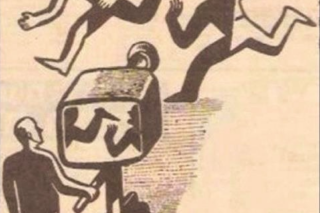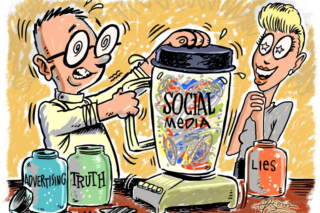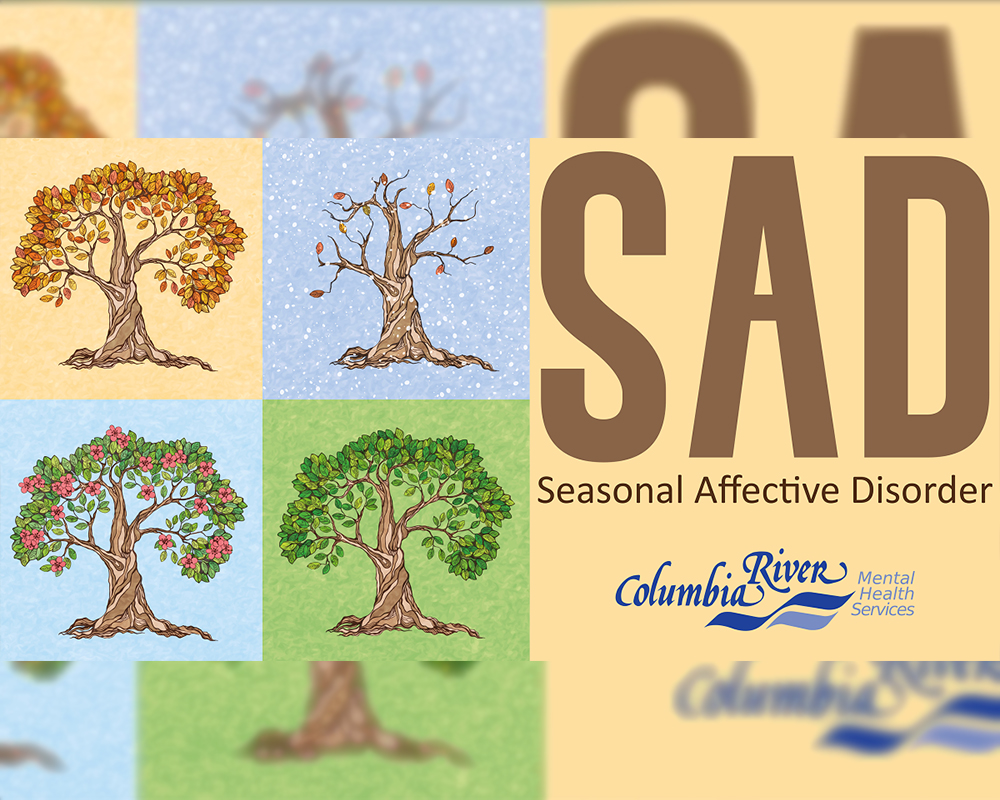Cai Johnson, Staff Writer
Every calendar year, the hour leaps ahead on the first Sunday of November. The hours of leisure start to dwindle as the moods start to shift and the days get darker earlier. Many people constantly find themselves cold, fatigued, and lonely as their levels of depression rise.
We can’t all be going through the same problems; What is going on that is making so many people depressed and what does the seasonal changes have to do with this? According to the Cleveland Clinic, approximately half a million people in the United States are currently suffering from this same disorder and it does have a name: Seasonal Depression.
Seasonal Depression, aka Seasonal Affective Disorder (SAD) is a mood disorder subset in which people who have normal mental health throughout most of the year exhibit depressive symptoms at the same time each year, most commonly in winter. As factors like weather, a lack of sunlight, and more start to influence your daily habits, the prevalence of Seasonal Depression arises. However by staying aware of symptoms and taking advantage of these three healthy tips, you can lessen the impact of being sad.
1.) Photo-therapy (light therapy)
Seasonal Depression is highly effective in the fall and winter seasons where the amount of sunlight can influence your bodies´ chemical makeup. More specifically, a lack of sunlight can disrupt your circadian rhythm and lead to a drop in levels of melatonin and serotonin. Your circadian rhythm and melatonin level have direct impacts on sleep patterns- your body will require more sleep due to these chemical imbalances.
One key way of fighting against SAD is by forcing your body to produce serotonin, which is directly produced by the presence of sunlight. It becomes vital for you to grab as much light during the daytime as possible, so it is important to take advantage of every minute if you begin to display depressive symptoms.
“Tanning Salons and UVA lights are key.” professor Yohance Murray, Chair of the Psychology Department said. “ ̈Try to get away and commute from work to home, if you can afford to.¨
Taking a vacation or mental health day could be the answer to your question- it increases the amount of sunlight your body consumes, increasing serotonin. Moreover, a break will help you clear your headspace and focus intrinsically. It is important to take advantage of these moments to gain clarity on what has been bothering you.
2.) Practice Healthy Habits Daily
The impact of SAD will likely be incumbent upon the necessary daily steps that a person takes to. Track your family history: people who have relatives who have been diagnosed with depression are more likely to have some form of depression themselves.
For example, experts suggest that plants are the perfect companions to help improve levels of morale and optimism. A study published in NBCNews showed that plants improve concentration, reduce your stress, and boost your mood. “Plant Parenthood” helps to give you a sense of companionship and purpose, many plants need some type of communication to survive.
Additionally, plants can help to maximize the purity of the air and minimize the levels of carbon dioxide or other pollutants. Extensive research by NASA had revealed the houseplants can remove up to 87 percent of air toxins in 24 hours. Look for plants that are suitable for low lights- namely Snake Plants, Ferns, Pothos, and Chinese Evergreens.
3.) Address It As A Community
As mentioned above, there are around half a million people currently suffering from Seasonal Depression. Many people are hesitant to speak out about their struggles because they feel that they are exposing themselves and the vulnerability of their mental health. However, withholding these emotions will only allow them to fester and augment into deeper levels of depression.
̈ ̈What mental health needs is more sunlight, more candor, and more unashamed conversation,̈” Award Winning actress Glenn Close said in a conversation around mental health
Fortunately, the AUC has recently started initiatives to fight against the stigmas surrounding mental health. The #BeingBlackIsNotATrend Initiative, led by Morehouse’s 88th “The Indelible Administration” Student Government Association, has been hosting talks and events addressing various mental health problems while also providing health life practices to battle against any upcoming symptoms. CHILL, a collective of peer counselors from various humanitive backgrounds (sociology, biology, and psychology,) has been a stable presence in the fight against mental health for years.
Moreover, Clark Atlanta University will be hosting a “Mental Health Matters” conference designed to #ENDTHESTIGMA on the weekend of November 23rd and 24th. All institutions within the AUC have recently placed an emphasis on mental health and on-campus safety. We must continue our efforts to raise awareness.
SOURCE:
Cleveland Clinic: https://my.clevelandclinic.org/health/diseases/9293-seasonal-depression
Seasonal Affective Disorder Mayo Clinic: https://www.mayoclinic.org/diseases-conditions/seasonal-affective-disorder/symptoms-causes/syc-20364651
NASA: https://spinoff.nasa.gov/Spinoff2007/ps_3.html















